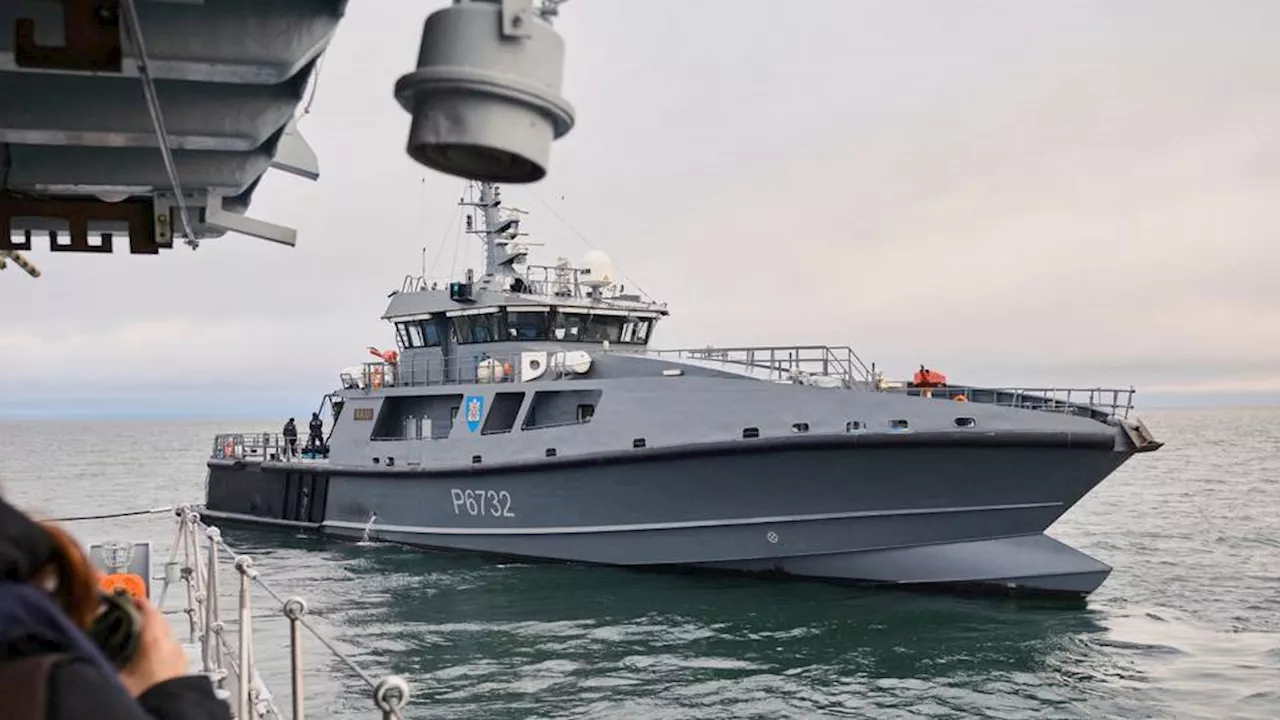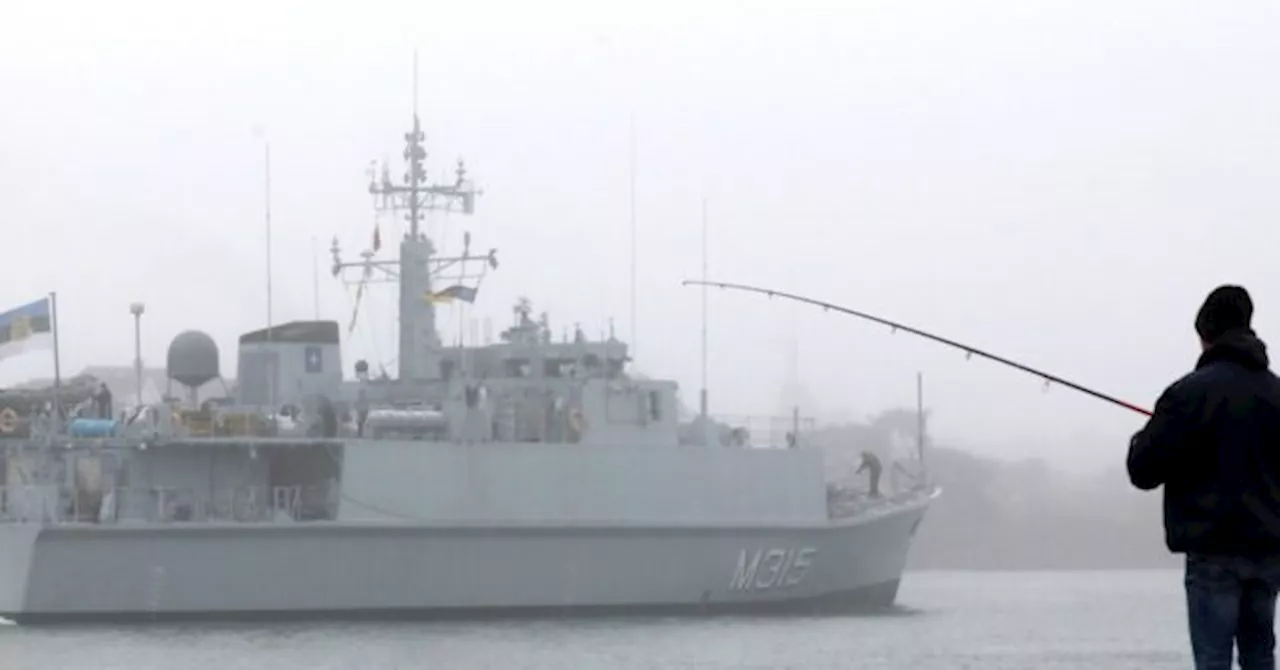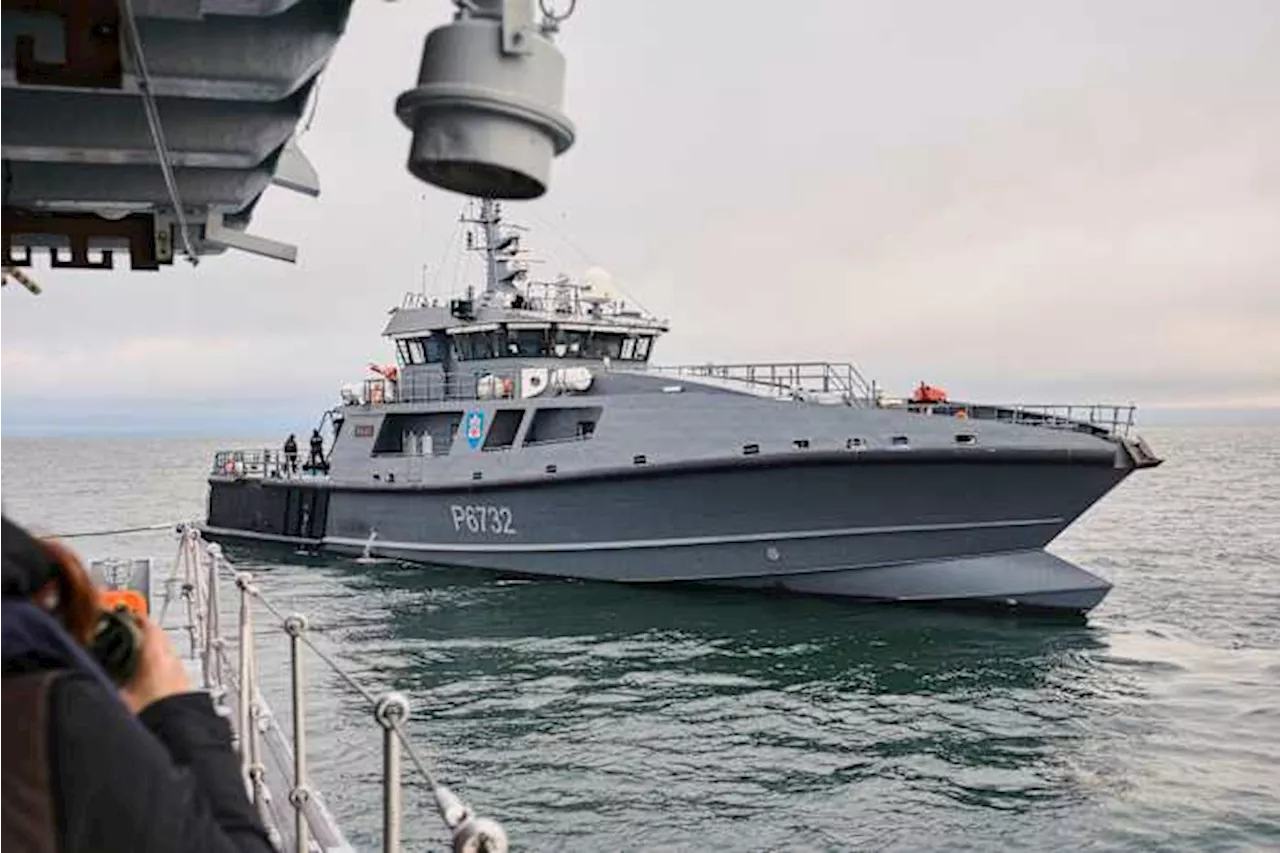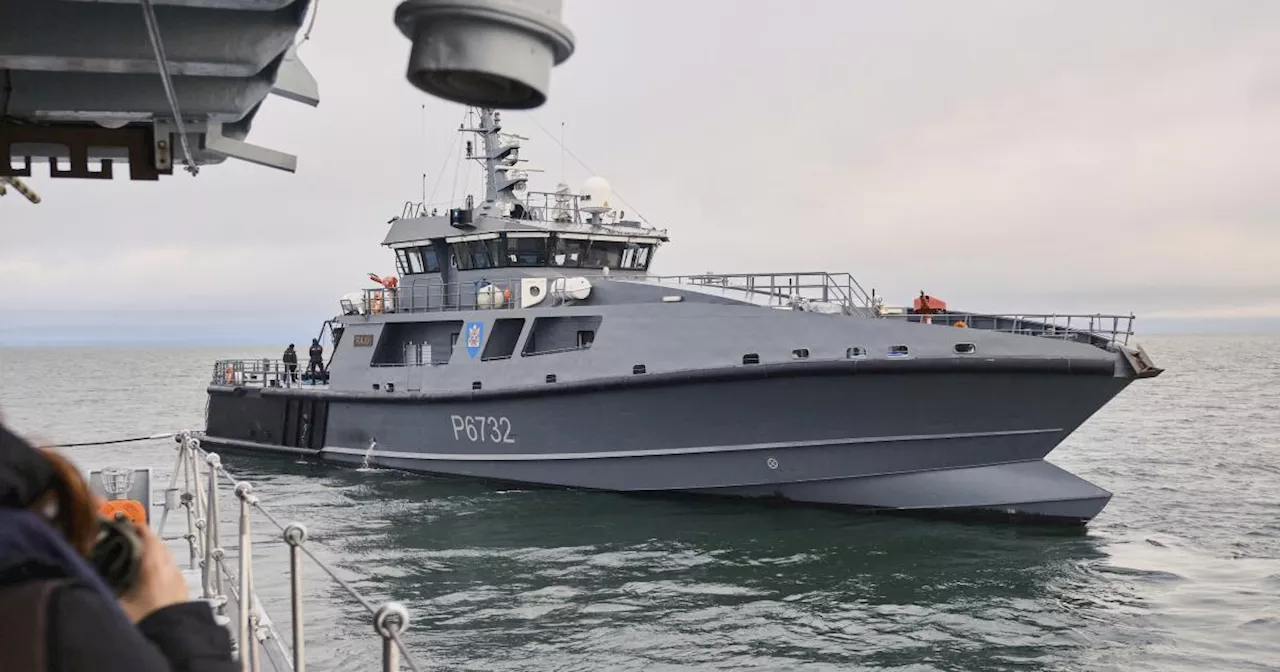NATO is launching a new mission, Baltic Sentry, to protect undersea cables in the Baltic Sea from potential Russian sabotage and espionage following a series of concerning incidents. The mission will involve frigates, maritime patrol aircraft, and naval drones to enhance surveillance and deterrence in the strategically important region.
NATO is launching a new mission to protect undersea cables in the Baltic Sea region following a series of incidents that have raised concerns about Russian sabotage and espionage in the strategically important area, the alliance's leader announced on Tuesday. Secretary-General Mark Rutte stated that the operation, codenamed Baltic Sentry, will involve frigates, maritime patrol aircraft, and a fleet of naval drones to enhance surveillance and deterrence.
\Rutte emphasized that the alliance has observed signs of a campaign aimed at destabilizing societies through cyberattacks, assassination attempts, and sabotage, including potential attacks on undersea cables in the Baltic Sea. Addressing reporters after a meeting in Helsinki with leaders from Allied Baltic nations, he highlighted the crucial role these cables play in global connectivity. More than 95% of internet traffic and an estimated $10 trillion worth of daily financial transactions rely on the over 808,000 miles of undersea cables crisscrossing the globe. \As Rutte met with Baltic leaders, reports emerged on Polish state broadcaster TVP World about a Russian “shadow fleet” vessel circling a natural gas pipeline connecting Norway to Poland. However, Poland's military later refuted these claims. The shadow fleet, comprised of hundreds of aging tankers with questionable ownership and safety records, circumvents sanctions and sustains the flow of oil revenue to Moscow, posing a significant concern for European nations. Rutte stressed that NATO's adversaries must understand that the alliance will not tolerate attacks on its critical infrastructure, vowing to take all necessary measures to counter such threats, monitor activities, and prevent future incidents. \The Helsinki meeting convened leaders from Finland, Germany, Poland, Denmark, Sweden, Latvia, Lithuania, and Estonia. In a joint statement, the Baltic Sea allies declared their right, under international law, to take action against any suspect vessels that evade sanctions and jeopardize security, infrastructure, and the environment. They emphasized that Russia's utilization of the so-called shadow fleet constitutes a particular threat to maritime and environmental security. Furthermore, they condemned this practice as a major contributor to funding Russia's illegal war of aggression against Ukraine. \To combat this challenge, the leaders pledged to implement innovative solutions, develop new technologies for surveillance and tracking of suspicious vessels and undersea monitoring. They also committed to exploring legal avenues to address the issue, strengthening information sharing, and fostering enhanced partnerships with the private sector, especially infrastructure operators and cutting-edge technology companies. Several recent incidents have heightened security anxieties. On December 26, Finnish police and border guards boarded the vessel Eagle S, linked to neighboring Russia, to investigate possible damage to a Baltic Sea power cable and several data cables. Chancellor Olaf Scholz, in separate remarks to reporters in Helsinki, confirmed Germany's participation in the Baltic Sentry mission, stating that Germany would contribute its full naval capabilities, which would vary depending on deployment possibilities. Sweden also announced its plan to contribute up to three warships to bolster the alliance's presence in the Baltic Sea, safeguarding against underwater infrastructure sabotage. While pressed for details about the operation's specifics, Rutte declined to disclose ship numbers, emphasizing the fluctuating nature of deployments and the desire to avoid providing the enemy with more information than necessary. He reassured that NATO would utilize the full spectrum of resources at its disposal
NATO Baltic Sea Undersea Cables Russian Sabotage Security Spy Shadow Fleet Cyberattacks Sanctions
United States Latest News, United States Headlines
Similar News:You can also read news stories similar to this one that we have collected from other news sources.
 NATO Launches Baltic Sentry Mission to Protect Undersea CablesNATO has announced a new mission, Baltic Sentry, to safeguard critical undersea cables in the Baltic Sea region. The mission comes amid growing concerns about potential sabotage and other destabilizing activities in the area.
NATO Launches Baltic Sentry Mission to Protect Undersea CablesNATO has announced a new mission, Baltic Sentry, to safeguard critical undersea cables in the Baltic Sea region. The mission comes amid growing concerns about potential sabotage and other destabilizing activities in the area.
Read more »
 NATO Launches Baltic Sentry Mission to Protect Undersea CablesNATO deploys a new mission, Baltic Sentry, to safeguard critical undersea cables in the Baltic Sea, amid growing concerns over their vulnerability to sabotage and disruption.
NATO Launches Baltic Sentry Mission to Protect Undersea CablesNATO deploys a new mission, Baltic Sentry, to safeguard critical undersea cables in the Baltic Sea, amid growing concerns over their vulnerability to sabotage and disruption.
Read more »
 NATO to Increase Baltic Sea Patrols After Suspected Cable Damage by Russian TankerFollowing the seizure of a Russian-linked oil tanker suspected of damaging undersea cables in the Baltic Sea, NATO Secretary-General Mark Rutte announced an increase in military patrols in the region.
NATO to Increase Baltic Sea Patrols After Suspected Cable Damage by Russian TankerFollowing the seizure of a Russian-linked oil tanker suspected of damaging undersea cables in the Baltic Sea, NATO Secretary-General Mark Rutte announced an increase in military patrols in the region.
Read more »
 NATO Bolsters Baltic Sea Presence Amid Suspected Russian SabotageNATO is increasing its naval presence in the Baltic Sea following the suspected sabotage of an undersea energy cable linking Finland and Estonia. Finnish authorities allege that Russia is behind the attack, which occurred on Christmas Day. This incident is the latest in a series of suspected attacks on critical infrastructure in the region.
NATO Bolsters Baltic Sea Presence Amid Suspected Russian SabotageNATO is increasing its naval presence in the Baltic Sea following the suspected sabotage of an undersea energy cable linking Finland and Estonia. Finnish authorities allege that Russia is behind the attack, which occurred on Christmas Day. This incident is the latest in a series of suspected attacks on critical infrastructure in the region.
Read more »
 Sweden Scrambled Jets to Intercept Russian Bombers Over Baltic SeaSwedish fighter jets intercepted Russian bombers in the Baltic Sea, raising tensions between Russia and NATO.
Sweden Scrambled Jets to Intercept Russian Bombers Over Baltic SeaSwedish fighter jets intercepted Russian bombers in the Baltic Sea, raising tensions between Russia and NATO.
Read more »
 NATO announces a new mission to protect undersea cables in the Baltic Sea regionNATO Secretary-General Mark Rutte says the alliance is launching a new mission to protect undersea cables in the Baltic Sea region.
NATO announces a new mission to protect undersea cables in the Baltic Sea regionNATO Secretary-General Mark Rutte says the alliance is launching a new mission to protect undersea cables in the Baltic Sea region.
Read more »
